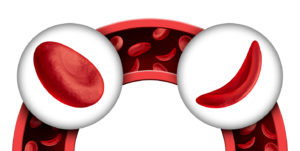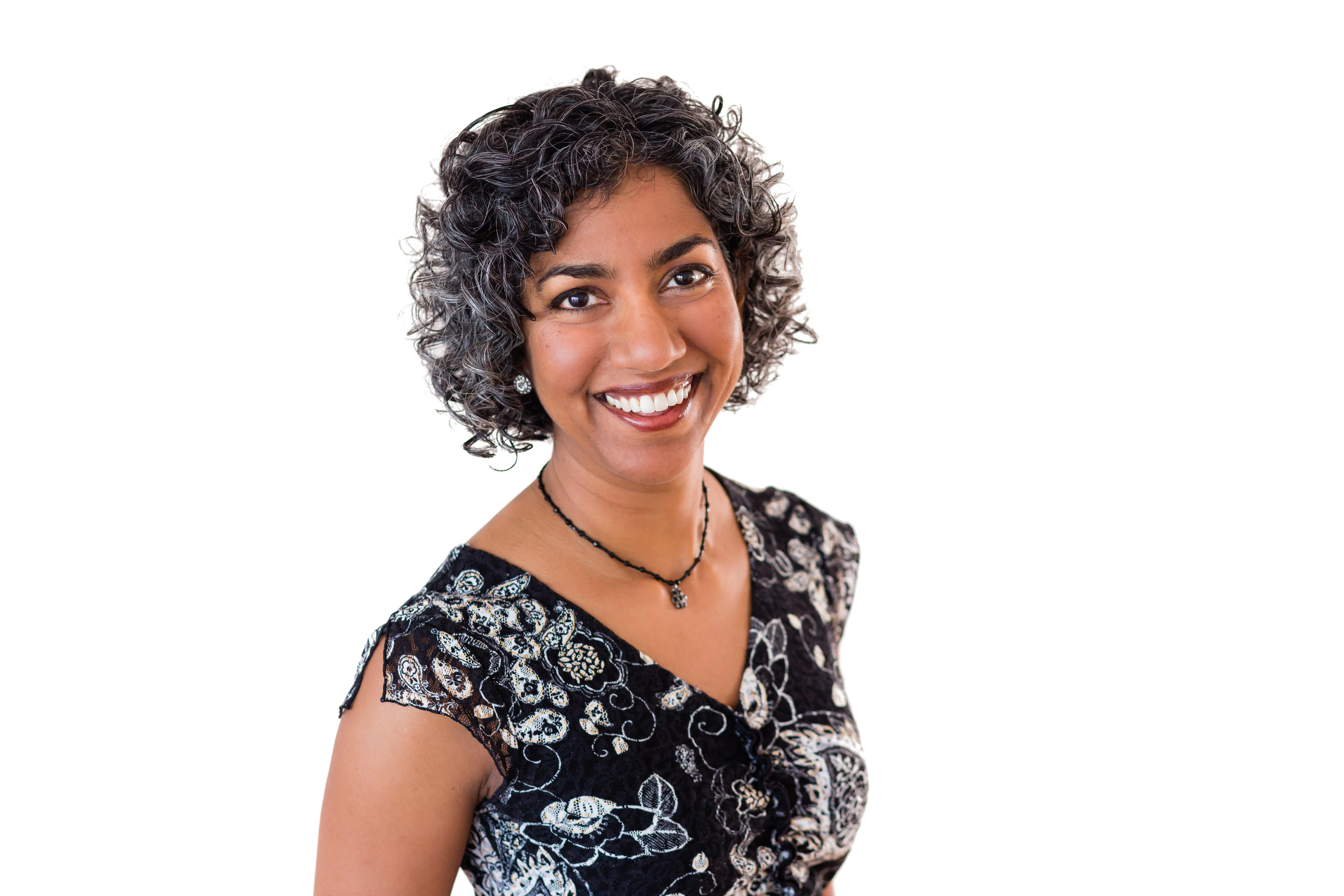What is sickle cell disease?
Sickle cell disease (SCD), also called sickle cell anemia, is a common inherited blood disorder that affects men and women across the world. Most often, SCD occurs in people of African, Middle Eastern, Mediterranean, Indian, Caribbean, Central American, and South American ancestries.

Normal red blood cell vs sickled red blood cell
Hemoglobin is an important chemical in red blood cells that carries oxygen to all parts of the body. People with SCD make a different type of hemoglobin, called hemoglobin S. Red blood cells with hemoglobin S are shaped like a sickle (a crescent moon) rather than a round circle. The sickle shape causes them to be stiffer, stickier, and less flexible. As a result, sickle-shaped red blood cells can get stuck in blood vessels in the body, causing pain in someone with SCD.
What are symptoms of sickle cell disease?
The signs and symptoms of SCD vary – even between family members. People with SCD may have periods of serious pain (called “crises”), more frequent infections, high blood pressure (part of “acute chest crises”), or a stroke. They may also experience significant fatigue or trouble catching their breath, as well as yellowing of the eyes or skin (jaundice). Children with SCD may be slower to grow or have delays in their development.
How is sickle cell disease inherited?
SCD follows an autosomal recessive inheritance pattern. It is associated with having two pathogenic variants, or mutations, in the HBB gene. Parents of someone with SCD usually carry one HBB mutation and are called “carriers” – also known as having “sickle cell trait” or SCT. People with SCT usually do not have obvious symptoms. There may be no one with SCD in the family, so someone with SCT may not know they are a carrier. This is important when considering a pregnancy, particularly for people that come from an ancestry group where SCD is more common.
How can someone find out if they are a sickle cell disease carrier?
Genetic testing for SCT is available. Some tests, such as expanded carrier screening, are available to everyone, even without a family history of a particular condition. Some tests may not be covered by health insurance, so it is important to discuss this with a healthcare provider before having testing done.
How is sickle cell disease treated?
There are several treatments available for SCD, with more being developed. Treatments vary across the world, and may include:
- Hydroxyurea: Helps reduce symptoms of SCD, especially pain crises, chest crises, or severe anemia.
- Blood transfusion: Often done to boost normal hemoglobin levels and improve anemia, and may be done regularly in someone with SCD.
- Chelation therapy: Removes extra iron that can result from repeated blood transfusions.
- Blood and bone marrow transplant: Often done in children who have early and severe symptoms of SCD, such as strokes, acute chest crises, or pain crises.
People with SCD can benefit from coordinated care that different medical specialists provide. In many cases, this multidisciplinary care is able to control symptoms well.
Is preimplantation genetic testing available for sickle cell disease?
Yes. The first reported successful preimplantation genetic testing (PGT) for SCD happened in 1999. PGT-M (PGT for monogenic disorders) is the type commonly offered to couples who both have SCT. The option of PGT provides a different route to conception that may help reduce anxiety for families at risk for SCD, particularly when there is uncertainty about the progress in treatments or availability of them. Many factors play a role in whether or not parents decide to pursue PGT. Meeting with a genetic counselor before becoming pregnant is the best next step to explore the risk to have a child with SCD and discuss the option of PGT.
For more information and resources about sickle cell anemia, please visit the Sickle Cell Disease Coalition website.

Deepti is an independent consultant for Sharing Healthy Genes. She is a highly skilled writer and editor with medical communications and marketing experience, which blends with her 20+ years of clinical acumen as a certified genetic counselor in the U.S. and Canada. Deepti has an active consulting business and is an engaged member of the National Society of Genetic Counselors, most recently serving as a 2018-2020 Director at Large. In her downtime, you’ll find Deepti poring over cookbooks, facing down superhero quizzes from her sons, or writing about her family’s foodie gene on her blog.
